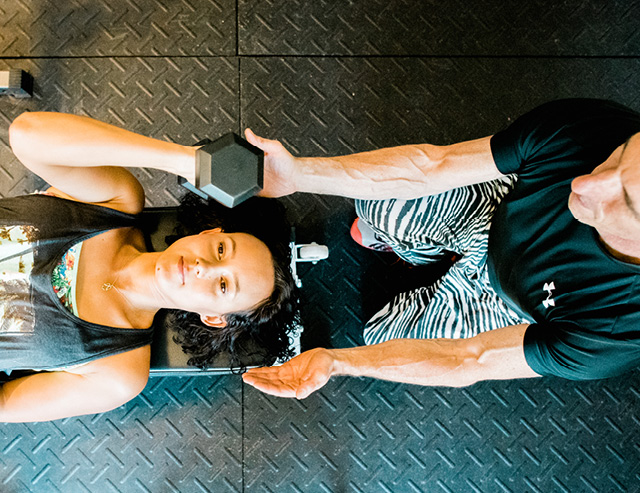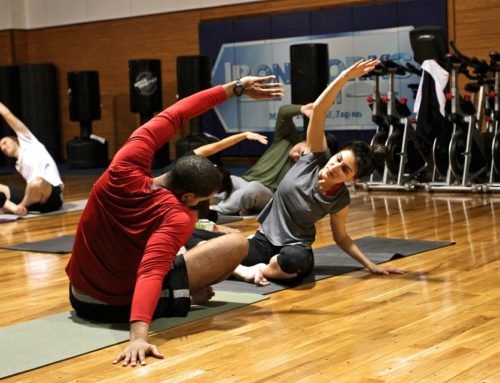By Dr. Mercola
Many Americans are striving to be healthier. A 2013 survey revealed that 57 percent of U.S. adults are concerned with eating a healthier diet, 54 percent want to maintain a healthy weight, and 45 percent are trying to reduce stress in their lives.1
Yet despite these good intentions, less than one-third of Americans are at a healthy weight,2 and most are not eating healthy either. The latest data show that nearly 23 percent of Americans report consuming vegetables and fruits lessthan one time daily.3
And as for stress, this is another area where many Americans want to do better but don’t often achieve relief. About one-third of Americans report feeling stressed out at work, for instance, but most won’t take a vacation day because of it.4
What’s causing this large disparity between how we want our lives to be and how they actually are? Typically, it’s not a matter of changing external factors that matters most. The number one thing that’s probably preventing you from changing your health habits is your own mind.Are Self-Limiting Beliefs Sabotaging Your Health Goals?Darya Rose, Ph.D., is the author of “Foodist,” a book about losing weightwithout dieting by eating real food. A crux of the book is helping you learn how to stock your kitchen and cook real meals at home, a principle I have long described as one of the most important to achieving optimal health.
Rose states that “health and happiness are found at the farmers market” and most of her recipes are based around the “treasures” she finds there. She’ll bring home any type of seasonal produce that catches her eye, even if she doesn’t yet know what it is.
“The internet contains a wealth of information and is an invaluable tool for any home cook,” she says, making it sound as though whipping up a meal from your farmer’s market finds is a snap (and it can be simple, once you learn the basics of cooking).5 Ironically, Rose didn’t always know how to cook.
In fact, for a long time she looked down upon it. It wasn’t until she let go of her limiting beliefs about cooking that she ultimately found health, happiness, and a new real-food-oriented career path to go along with it. In a post that originally appeared on her Summer Tomato website, reposted by Greatist, she wrote:6
“As with most new habits, the number one limiting factor in creating change was my own mind. More specifically, the limiting beliefs I had about myself and my identity.
If I’m completely honest with myself, there was a time I thought I was too good for cooking. Obviously this is ridiculous and far from true, but at the time, it prevented me from making cooking a priority or even trying something new.
… My belief that I needed to focus exclusively on my career meant that I also believed spending time on domestic tasks was a waste of time. I took the positive value of a strong work ethic and projected it too far, letting it keep me from trying things that could have drastically improved my life.”
Are You ‘Too Busy’ to Cook Dinner?Many times when you say you can’t do something, it’s because a limiting belief is holding you back. This can take on many forms, but let’s look at the common problem of feeling you don’t have enough time to cook your meals. There’s probably a limiting belief lingering here. As Rose explained:7
“Perhaps you haven’t practiced cooking much, so every time you try it’s frustrating and takes a substantial amount of time, as is true with anything you’re learning.
Another possibility: You can cook, but you’re accustomed to complicated recipes that require many different components and lots of attention to detail. You’re actually just too tired at the end of the day for that kind of effort.
In one case, you tell yourself you don’t have time, when you actually just haven’t acquired the skills. In the other, you believe all cooking needs to be complex and time-consuming.
In both instances, knowing a few simple cooking techniques and having a weekend shopping habit plus a handful of home court recipes would solve the problem.
If you get past the limiting belief, you can tackle these much simpler, more practical concerns. Instead of having to move mountains to find an extra hour in your day, in a few weeks you’ll be able to walk in the door after work, and whip up something in under 30 minutes.”
Once you’ve recognized your limiting belief and decided to move past it, it can help to focus on the benefits of doing so. In the case of cooking your own meals, for instance, you stand to reap many rewards.
Research shows that children who share family meals three or more times a week are more likely to be in a healthy weight range and make better food choices.8
They’re more likely to eat healthy foods and less likely to eat unhealthy ones, and also less likely to develop eating disorders and social and behavioral problems.
The benefit of the family meal comes not only from time spent eating together, but also from the time spent shopping for food, preparing your meals, cleaning up, and even tending a garden. Getting your children and partner involved teaches them about nutrition, as well as how to work together as a family.
Children will also learn environmental awareness and the importance of supporting organic and sustainable foods and farms. Sharing meals gives you an opportunity to pass along special recipes and family traditions that you may have learned from your mother or grandmother.
You can learn, and then teach your children, the importance of traditional food preparation methods, such as fermenting, juicing, sprouting seeds, soaking nuts, and preparing raw meals.
These lessons are invaluable for building a rich family heritage, as well as giving your children the tools they need to live long, healthy lives.
10 Tips for Setting and Reaching Your Fitness GoalsLimiting beliefs extend far beyond the kitchen; they may be affecting virtuallyany aspect of your life. Rose stated:9
“Limiting beliefs hold us back in ways we don’t even realize. How does this apply to you? We all have limiting beliefs that hold us back. Maybe you believe you can’t take care of your own health because you need to give your children and family all of your attention.
Maybe you believe you can’t exercise because you hate running on the ‘dreadmill.’ Maybe you believe you can’t lose weight because everyone in your family is ‘big-boned.'”
One common area for limiting beliefs is fitness. Have you tried time and again to set up an exercise routine only to give up after a few weeks? Try some of these motivational tips, which come from celebrity trainers as reported by Self:10
- Think Like an Athlete: Instead of exercising only to improve your outward appearance, focus on improving performance, strength, and speed.
- Make Three Promises: Promise to do resistance training three times per week, to eat your protein first at lunch (to help cut back on carbs), and to end cardio workouts with three 15-second all-out bursts (rest for 30 seconds in between).
- Imagine You’re on a Deserted Island: Do the activities that appeal most to you; don’t force yourself to run if you’d rather be swimming or dancing.
- Use Power Words: Instead of saying, “I can’t eat that,” say, “I don’t eat that.” It changes something restrictive into something empowering.
- Write It Down: Write down one thing you want to let go of this year, then burn the piece of paper. Write down one thing you want to focus on and grow for the year, and keep it displayed somewhere you see daily (like your bathroom vanity).
- Strive for Action: Make action-oriented goals instead of idea-oriented ones. For example, instead of resolving to lose weight, resolve to get up 30 minutes earlier every Monday, Wednesday, and Friday to fit in a quick workout at home.
- Be Passionate: Create S.M.A.R.T. goals, which are Specific, Measurable, Attainable, Relevant, and Timely. And be sure to only create goals that mean something to you.
- Find What Makes You Happy: There’s no reason to spend time doing an activity you despise. Choose an active lifestyle that thrills and fulfills you, while approaching movement with a grateful, open heart.
- Get Specific: Choose one very specific goal to focus on at a time. Rather than setting a goal to “exercise more,” set a goal to exercise for 20 minutes three times a week. Be sure your goals also have set deadlines by which to complete them, as this creates a sense of urgency.
- Be Supportive: Be patient, forgiving, and supportive of yourself, and grateful for what you have. Remember, you’re human, don’t be too hard on yourself.
Let Go of Your Limiting Beliefs for Better Fitness and Overall Health
After using these tips, if you still find yourself struggling to stick with your fitness routine, be realistic about the limiting beliefs you’re holding on to.
For instance, do you feel like you don’t have time to exercise because you need to be devoting that time to other people, such as caring for your children or elderly parents, or devoting time to work or other family obligations? The opposite is actually true because when you put in the time to take care of yourself, it recharges you so you’re able to take care of others and function to the best of your ability daily.
The New York Times quoted Michelle Segar, Ph.D., and author of “No Sweat: How the Simple Science of Motivation Can Bring You a Lifetime of Fitness:”11
“When we do not prioritize our own self-care because we are busy serving others, our energy is not replenished. Instead, we are exhausted, and our ability to be there for anyone or anything else is compromised.’ People who make physical activity a priority don’t necessarily have more time than others. Rather, they make sure to schedule time for it because they know it enhances their performance and the quality of their daily lives …
Citing a ‘paradox of self-care,’ Dr. Segar wrote, ‘The more energy you give to caring for yourself, the more energy you have for everything else.’ She suggests viewing physical activity as a power source for everything else you want to accomplish. ‘What sustains us, we sustain …'”
Once you recognize and decide to overcome your limiting beliefs, you’ll easily be able to tackle your fitness goals. According to Rose:12
“Recognizing your limiting beliefs helps you turn a seemingly insurmountable problem into a smaller, more manageable challenge you can actually handle. There are creative solutions to almost all simple problems, but you have to be willing to consider them.”
If finding motivation is an issue for you, in the video above Julie Schiffman shows you how to use the Emotional Freedom Techniques (EFT) to find the motivation to exercise. In addition, you can use EFT for setting goals and sticking to them, which is what the video below is focused on.





